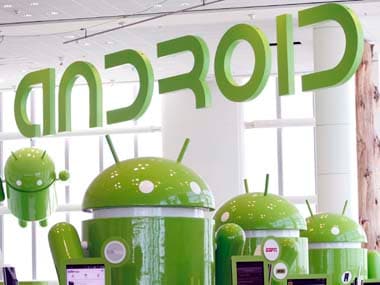Google’s Android operating system now accounts for a whopping 81 percent of all smartphones shipped worldwide during the third quarter of 2013, according to theInternational Data Corporation (IDC) Worldwide Quarterly Mobile Phone Tracker.
The IDC report said thatAndroid shippeda total of 211.6 million smartphone units, accounting for81 percent of all smartphone shipments, marking the first time that Android topped 8o percent in its short history.
Even though iPhone sales grew 25.6 percent from a year earlier, the growth was slower than that of the overall market and Apple’s share fell to 12.9 percent from 14.4 percent in the same period last year. “iOS, despite seeing its total volumes increase and reaching new record third quarter volumes, saw its market share decline during 3Q13, most likely due to soft demand in the weeks leading up to the launch of iOS 7 smartphones. Still, if the 9 million units sold during the last week of September is any indication of future adoption, iOS stands to reap another record quarter in terms of volumes, market share, and year-over-year growth”, an IDC press statement said.
[caption id=“attachment_1227755” align=“alignleft” width=“380”]  The Android army is taking over the world: Reuters[/caption]
The other gainer however, was Microsoft’s Windows phone platform, whichgrew 156 percent year on year. Its overall market share however is still less than five percent. But as an IDC statement pointed out, “Microsoft’s efforts, with Nokia’s support behind it, helped drive the platform into multiple tiers and price points”.
“Android and Windows Phone continued to make significant strides in the third quarter. Despite their differences in market share, they both have one important factor behind their success: price,” said Ramon Llamas, Research Manager with IDC’s Mobile Phone team. “Both platforms have a selection of devices available at prices low enough to be affordable to the mass market, and it is the mass market that is driving the entire market forward.”
As far as Android was concerned however, IDC noted thatwhile Android, as a whole, moved forward, the vast majority of its vendors still struggle to find meaningful market share. Samsung accounted for 39.9 percent of all Android shipments for the quarter, while the rest of the vendors either saw single-digit market share or, in the case of the majority of vendors, market share of less than 1 percent.
This news is even more significant, given that Samsung has begun testing its Tizen mobile operating system. The first developer conference in Asia for Tizen wrapped up Tuesday after a two-day run, bringing together app developers and Tizen backers from Samsung, Intel and mobile operators.
“With only hardware, its influence is limited,” said Kang Yeen-kyu, an associate research fellow at state-run Korea Information Society Development Institute. “Samsung’s goal is to establish an ecosystem centered on Samsung.”
The consolidation of global technology companies in the last few years reflects such trends. Apple has always made its own operating system for the iPhone. Google Inc. acquired Motorola Mobility in 2011 and Microsoft Corp. announced in September its plan to buy Nokia Corp., leaving Samsung the only major player in the smartphone market that does not make its own operating system.
Meanwhile a beleagueredBlackBerry, recorded the largest year-over-year decline among the leading operating systems during 3Q13. Underpinning its results was softer demand for its new BB10 operating system and continued demand for its older BB7 within emerging markets. “Now with a new CEO in place and an infusion of $1 billion, what remains to be seen is how and when the beleaguered operating system will be able to change course in the face of mounting pressure from Android, iOS, and Windows Phone”, IDC said.


)
)
)
)
)
)
)
)
)



